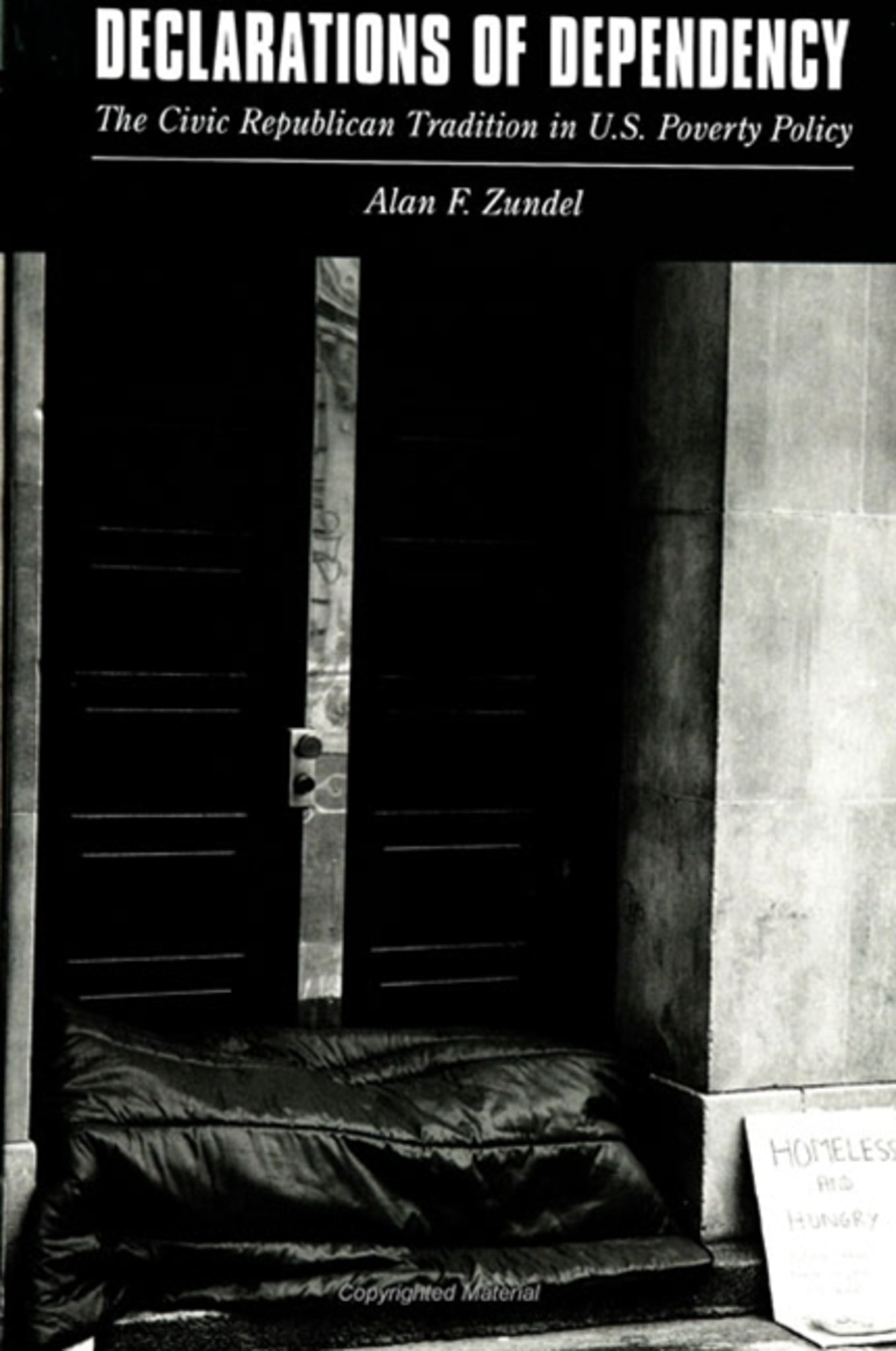We're sorry. An error has occurred
Please cancel or retry.
Declarations of Dependency

Some error occured while loading the Quick View. Please close the Quick View and try reloading the page.
Couldn't load pickup availability
- Format:
-
12 October 2000

Presents an original and provocative argument about poverty policy in the United States.
Why has poverty in the United States been so controversial? Why do political discussions of poverty seem to continually rely on the same set of ideas? This book shows that answers to these questions can be found in the political tradition of civic republicanism that made sense in America's agricultural era but which fail to correspond with the realities of modern economic conditions. Three policy areas: homeownership for the poor, cash-aid programs, and policies to help the poor become owners of productive assets are examined, followed by Zundel's ideas for designing poverty policy for the new millennium.


"Declarations of Dependency presents a compelling history of civic republicanism's pervasive influence on poverty policy and underlines the importance of political viability within anti–poverty strategies." — Journal of Children & Poverty
"This book is potentially ground-breaking and could help re-orient public policy regarding poverty in a way that would lead to the adoption of more humane as well as more realistic policies designed to help the poor" — L. Peter Schultz, author of Governing America
"...interesting and insightful...in many ways...provocative" — Dan Durning, University of Georgia
Acknowledgments
Preface
1. Introduction: Policy Analysis and Ethical Traditions
2. Dependence and Independence in the Nineteenth Century
3. Homeownership for the Poor
4. Welfare and Work
5. Capital Assets and the Poor
6. Conclusion: Independence in a Postindustrial Economy
Notes
Bibliography
Index



